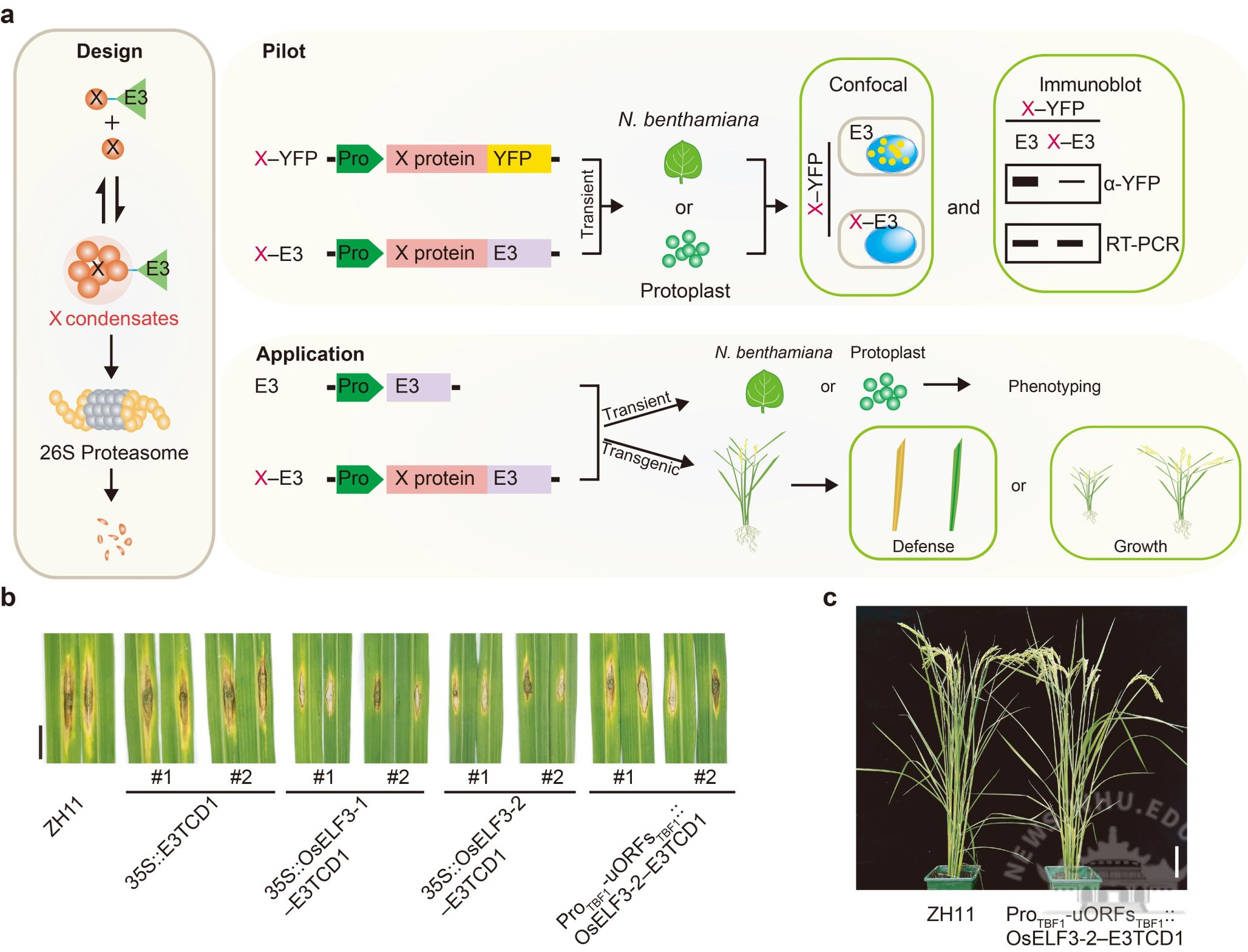Professor Xu Guoyong's research team at Wuhan University (WHU) has developed a genetically encoded targeted protein degradation (TCD) technology, which was recently published in Nature Communications under the title Genetically-Encoded Targeted Protein Degradation Technology to Remove Endogenous Condensation-Prone Proteins and Improve Crop Performance.

a) A schematic diagram of TCD. X. b) A heatmap showing the distribution of E3 ligases among the RING subfamilies during screening. c) Exemplifying E3IDPs with (E3IDP1) or without (E3IDP6) visible condensates.
TCD utilizes the phase separation principle and the E3 ubiquitin ligase E3TCD1 to selectively degrade endogenous protein aggregates, enabling precise regulation of rice development and disease resistance. Unlike traditional gene editing, this method does not alter genetic sequences, making it a simpler and more efficient approach to the genetic enhancement of plants.
The study demonstrates that TCD technology can be applied in tobacco, Arabidopsis, and rice through transgenic or transient expression methods. The WHU team successfully used this technique to enhance rice resistance and reduce disease without affecting flowering time, marking a breakthrough in genetically engineered crops.
Beyond agriculture, this research provides new tools for studying plant gene functions and holds potential applications in gene therapy for human diseases.
Link to paper: https://www.nature.com/articles/s41467-025-56570-x